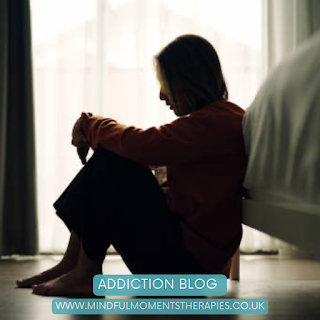The Silent Struggle: Understanding Isolation and Its Impact on Mental Health By Phiona Hutton
Isolation is a silent epidemic affecting millions across the globe. It creeps in unnoticed, often masked by physical health issues, social withdrawal, cultural displacement, or life transitions like divorce or bereavement. While a moment of solitude can be healing, prolonged isolation can become a breeding ground for emotional, mental, and even physical suffering.
What Is Isolation?
Isolation is more than being alone, it's the distressing experience of feeling disconnected, unseen, or misunderstood. It affects people of all ages, backgrounds, and identities. The causes are varied:
- Social withdrawal due to anxiety or trauma
- Chronic illness or disability that limits mobility or energy
- Elderly loneliness, especially after the loss of a spouse
- Divorce or separation from loved ones
- Community rejection, especially in cases of LGBTQIA+ discrimination
- Immigration and emigration, where cultural and language barriers isolate individuals
- Neurodiversity, where individuals may struggle with social norms or feel excluded
- Gender and sex identity issues in unaccepting environments
How Isolation Manifests
Isolation doesn’t always look like a person sitting alone. It can be:
- The elder who rarely receives visitors
- The teen withdrawing after bullying
- The parent overwhelmed by postpartum depression
- The immigrant unable to navigate a foreign language
- The person with autism struggling to be understood
- The man afraid to talk about his mental health for fear of stigma
Mind: Anxiety, intrusive thoughts, depression, hopelessness, suicidal ideation
Body: Fatigue, sleep disturbances, headaches, lowered immunity, chronic pain
Emotions: Irritability, sadness, emotional numbness, feeling like a burden
Signs to Look For in Loved Ones
- Withdrawal from social activities
- Sudden changes in mood or behavior
- Neglected hygiene or home environment
- Increased substance use
- Expressions of worthlessness or hopelessness
- Disinterest in previously enjoyed activities
The Toll on Mental Health
Prolonged isolation can lead to:
- Clinical depression
- Addiction (alcohol, drugs, gambling, etc.)
- Self-harm and suicide
- Cognitive decline, especially in older adults
- Poor coping mechanisms, such as binge eating or avoidance
Pathways to Healing: Therapy and Support
1. Talking Therapies
Cognitive Behavioral Therapy (CBT), person-centered therapy, or group therapy can help individuals process feelings, learn coping tools, and reconnect.
2. Creative Interventions
Art, music, and drama therapies offer alternative outlets for expression and connection, especially for those who struggle with verbal communication.
3. Nature and Ecotherapy
Spending time in nature reduces cortisol levels, improves mood, and reconnects individuals with the world around them, combatting feelings of detachment.
4. Peer and Community Support
Charities and community groups provide critical safe spaces. Befriending schemes, social cafes, language groups, and LGBTQIA+ meetups reduce isolation.
Prevention: What Can We Do?
- Check in: A phone call, a coffee, a conversation — it matters.
- Be inclusive: Notice who’s being left out and make space for them.
- Learn and educate: Break stigma around mental health, neurodiversity, and identity.
- Support grassroots work: Volunteer, donate, or spread awareness about local charities.
- Encourage therapy: Normalise seeking help and sharing struggles.
- Create connection spaces: Whether it's a book club, support group, or neighborhood event, connection heals.
Everyone’s Isolation Looks Different
One person may cry out, another may disappear silently. One may drown in depression, another in addiction. Recognising that isolation is deeply personal and multifaceted helps us become better allies, neighbors, and friends.
Together, We Can Make a Difference
Let’s build a world where no one suffers alone. Let’s talk about it, act on it, and offer our hands to those who need them most.
If you or someone you know is struggling, reach out to mental health charities, helplines, or a trusted healthcare professional.
Whether you're dealing with stress, anxiety, trauma, bereavement or looking to break habits, reframe fears, or phobias. Phiona can help you develop approaches to overcome these barriers that prevent you from living life to the fullest. Helping you navigate life’s challenges and take the next step towards a brighter, calmer future.
If you feel you would like support, and you feel therapy may be the answer. I offer 15 minute complimentary consultations, for you to have the chance to discover how therapy might support you. Visit my website for more information.
Or Email
You can also follow my socials
@mindfulmomentstherapies
On
You can now read and subscribe to my monthly newsletter with the link below. For tips, support, suggestions and offers. Helping you to bring balance to your mind and wellbeing.
Did you know you can now download selected MP3 hypnosis downloads from the website. If there isn’t one there for you let me know and I can add it to my list to record.
And lastly did you know I run monthly workshops online. Take a look at the workshops available and book your space from the website.
#MentalHealthAwareness #EndIsolation #CommunityMatters #LonelinessKills #MentalHealthSupport #YouAreNotAlone #NeurodiversityMatters #LGBTQSupport #ArtTherapy #NatureHeals #TalkingTherapy #TogetherWeHeal #CheckOnYourFriends #HealingInCommunity #mindfulmomentstherapies




Comments
Post a Comment